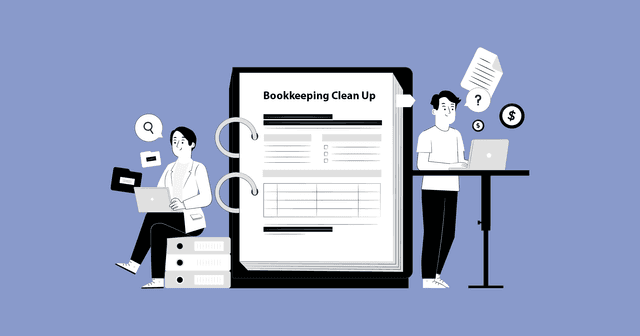The Rise of Subscription-Based Bookkeeping Services: Is It Right for Your Business?
Subscription-based bookkeeping services are transforming the way businesses manage their finances, offering predictable pricing, scalability, and automation-driven efficiency. Instead of paying hourly or hiring in-house staff, businesses can now access professional bookkeeping on a fixed monthly or annual subscription model. These services provide essential financial functions like transaction reconciliation, financial reporting, payroll processing, and tax compliance, often integrating with cloud-based accounting software for real-time insights. While this model is ideal for small to mid-sized businesses looking for cost-effective and flexible solutions, it may not suit companies with complex financial needs requiring personalized attention. Businesses considering a switch should evaluate service offerings, scalability, integration with accounting tools, and access to financial expertise to determine if subscription-based bookkeeping is the right fit for their long-term financial strategy.
Bookkeeping has evolved significantly in recent years, with automation, cloud technology, and AI-driven solutions transforming how businesses manage their finances. One of the most notable trends in the industry is the rise of subscription-based bookkeeping services, offering a scalable, predictable, and cost-effective solution for businesses looking to streamline their financial operations.
This shift towards a subscription model has changed how businesses engage with bookkeeping services. Instead of hiring an in-house bookkeeper or paying hourly fees for outsourced services, companies can now access professional bookkeeping on a monthly or annual subscription basis, much like they would with SaaS (Software-as-a-Service) products.
But is this model right for your business? In this article, we’ll explore the benefits, potential drawbacks, and key factors to consider before switching to a subscription-based bookkeeping service.
What Are Subscription-Based Bookkeeping Services?
Subscription-based bookkeeping services operate on a fixed-price, recurring billing model, where businesses pay a predetermined fee for bookkeeping services based on their needs. Instead of being billed per transaction or per hour, businesses pay a monthly or annual fee that covers a range of services, including:
• Transaction categorization and reconciliation
• Monthly financial reports (P&L, balance sheet, cash flow statement)
• Accounts payable and accounts receivable tracking
• Payroll management
• Tax preparation and compliance support
• Financial forecasting and budgeting insights
These services are often delivered remotely using cloud accounting platforms like QuickBooks, Xero, and FreshBooks, allowing businesses to access real-time financial data anytime, anywhere.
Why Subscription-Based Bookkeeping Is Gaining Popularity
The shift toward subscription-based bookkeeping is driven by several key factors:
1. Cost Predictability & Affordability
One of the biggest advantages of a subscription model is cost predictability. Businesses no longer need to worry about fluctuating bookkeeping expenses based on time spent or the complexity of financial tasks.
With fixed monthly pricing, business owners can budget more effectively and avoid unexpected bookkeeping costs, making financial planning easier.
2. Scalability for Growing Businesses
Traditional bookkeeping services often become expensive as businesses scale, requiring more financial oversight and transactions. Subscription-based bookkeeping services often offer tiered pricing plans, allowing businesses to upgrade or downgrade their plan based on their needs.
For example, a startup may start with basic bookkeeping services and later transition to a higher-tier package that includes payroll management, cash flow forecasting, and tax strategy support as the business grows.
3. Real-Time Financial Insights
Unlike traditional bookkeeping, which may involve quarterly or yearly reconciliations, subscription-based services emphasize real-time financial reporting. Many of these services integrate with cloud-based accounting software, ensuring that businesses have up-to-date financial data at their fingertips.
With access to live financial dashboards, business owners can monitor revenue, expenses, and profitability metrics in real time, enabling faster and more informed decision-making.
4. Automation and AI-Driven Efficiency
Subscription-based bookkeeping providers leverage AI and automation to streamline repetitive tasks, such as data entry, bank reconciliation, and invoice processing. This reduces errors, increases efficiency, and allows human bookkeepers to focus on more strategic financial tasks.
By integrating machine learning tools, these services can also detect anomalies, flag suspicious transactions, and automate financial reports, saving businesses time and effort.
5. Access to Professional Expertise Without Hiring In-House Staff
Hiring a full-time bookkeeper or accountant can be expensive, especially for small businesses and startups. Subscription-based bookkeeping services provide access to experienced financial professionals at a fraction of the cost of an in-house hire.
Many providers also offer on-demand access to financial experts, so business owners can seek advice on tax planning, cost-cutting strategies, or financial compliance without needing a dedicated CFO.
Potential Drawbacks of Subscription-Based Bookkeeping Services
While there are many benefits, subscription-based bookkeeping may not be the right solution for every business. Here are some potential downsides to consider:
1. Limited Customization for Complex Businesses
Subscription-based bookkeeping services often work well for small to mid-sized businesses, but companies with highly complex financial structures (such as those dealing with multi-entity accounting, international taxation, or niche regulatory compliance) may require customized financial solutions beyond standard subscription packages.
2. Less Personalization Compared to In-House Bookkeepers
Unlike having an in-house bookkeeper who understands the unique financial nuances of your business, subscription-based services may take a more standardized approach to bookkeeping. While some providers offer dedicated account managers, businesses with highly specific financial needs may require more personalized attention.
3. Potential Security Concerns
Since most subscription-based bookkeeping services operate remotely and rely on cloud accounting software, businesses must ensure strong cybersecurity measures to protect sensitive financial data. Data breaches, unauthorized access, and software vulnerabilities are risks that need to be mitigated with multi-factor authentication, encrypted data storage, and regular security audits.
How to Choose the Right Subscription-Based Bookkeeping Service
If you’re considering switching to a subscription-based bookkeeping service, here are some key factors to evaluate before making a decision:
1. Service Offerings & Features
Compare different providers based on the range of services they offer. Consider whether the package includes:
✔ Bank reconciliations
✔ Financial reporting (P&L, balance sheet, cash flow statements)
✔ Payroll processing
✔ Tax preparation
✔ Expense categorization and tracking
✔ Invoicing and accounts receivable management
2. Scalability and Pricing Tiers
Choose a service that offers scalable pricing plans that align with your current and future business needs. Some services provide custom packages for businesses with more complex financial requirements.
3. Integration with Accounting Software
Ensure the bookkeeping service integrates seamlessly with your existing accounting tools, such as QuickBooks, Xero, FreshBooks, or NetSuite.
4. Access to Financial Experts
Some providers offer on-demand access to bookkeepers, CPAs, or CFOs. If you anticipate needing strategic financial advice, choose a service that includes human expertise, not just automation.
5. Data Security and Compliance
Check the provider’s security protocols and compliance standards to protect your financial data. Look for services that offer encrypted storage, multi-factor authentication, and GDPR or SOC 2 compliance.
Final Verdict: Is Subscription-Based Bookkeeping Right for Your Business?
Subscription-based bookkeeping services offer cost efficiency, real-time financial insights, automation, and expert support, making them an attractive option for many small and mid-sized businesses. If your business needs a scalable, predictable, and tech-driven bookkeeping solution, then a subscription model could be a perfect fit.
However, businesses with highly customized financial needs, complex tax structures, or regulatory requirements may still benefit from a more tailored bookkeeping approach.
If you’re looking for a bookkeeping solution that adapts as your business grows, subscription-based services provide the perfect balance between affordability, efficiency, and expert support—helping businesses manage finances smarter, faster, and with greater accuracy.
Related articles
A Quick Historical Bookkeeping Clean-up
Historical bookkeeping clean-up is like an archaeological dig for financial documents. It is a vigorous, systematic process that ensures thorough scrutiny of every document. From verifying inconsistencies to reconciling payments, each layer of exhaustive evaluation brings greater clarity into your company's financial past. In this article, we will walk through all that historical bookkeeping clean-up entails.
Read moreAI in Bookkeeping How Automation is Changing Small Business Accounting
Artificial Intelligence (AI) is revolutionizing bookkeeping, making financial management more efficient, accurate, and scalable for small businesses. Traditional bookkeeping methods often involve manual data entry, reconciliations, and error-prone calculations. AI-powered bookkeeping automates these repetitive tasks, allowing businesses to save time, reduce errors, and focus on growth. Key AI features such as real-time transaction categorization, predictive analytics, and automated invoice processing are reshaping how businesses handle their books. AI-driven bookkeeping software also helps businesses maintain compliance with tax regulations, manage cash flow more effectively, and gain deeper financial insights through data analytics. With AI tools like machine learning algorithms, chatbots for financial queries, and automated reconciliation systems, small businesses can eliminate human errors, detect fraud, and make smarter financial decisions. As AI continues to evolve, it is expected to further personalize bookkeeping services, integrate with other business tools, and improve financial forecasting. For small businesses looking to stay ahead, embracing AI-driven bookkeeping is no longer optional—it’s a strategic move toward efficiency, accuracy, and long-term financial success. 🚀
Read more
